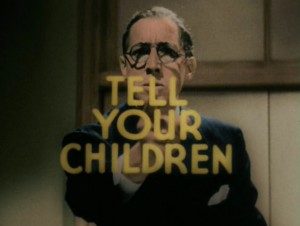
When I was working a cannabis law reform booth at a hippie festival in Nelson about eight years ago, I had an unpleasant encounter with a local hysteric. She approached us like she would have approached two fellows who were advocating to legalise child molestation and launched into a rant about the “twelves” who would inevitably get hold of cannabis if it was legal.
Before either of us could respond, she was dragged off by her embarrassed husband. If we had had the chance, we would have responded with an argument out of the Cannabis Activist’s Handbook: that a repeal of cannabis prohibition would actually make it harder for teenagers to get hold of cannabis.
Now there is evidence that this counterargument was correct. The stupid thing is that, if one puts the hysteria aside for ten seconds, it’s quite obvious that legal cannabis is safer for teenagers than New Zealand’s current black market model.
It was found that in Colorado, where cannabis was legalised in 2012, legal cannabis stores generally don’t sell weed to minors. In a study similar to the Liquor Board stings in New Zealand, 19 out of 20 Colorado cannabis retailers refused to sell cannabis to a person who looked under 21 and who could not produce ID.
As can be imagined, a 19 out of 20 rejection rate is much better than what it would have been had the 20 stooges gone to tinnie houses instead.

Even though American teenagers are consuming less alcohol and tobacco than previously, rates of cannabis use among teenagers remains constant. Why?
It’s probably because, as centuries of relentless cultural brainwashing has ever less of an effect thanks to the Internet spreading truth about forbidden subjects, people naturally come to realise that they enjoy smoking cannabis more than getting drunk and smoking cancer sticks.
A short history lesson: the Greatest and Silent Generations survived the Great Depression and World War Two and incurred severe psychological trauma in doing so. This trauma was passed down to the Baby Boomers, many of who were fed into the meat grinder of Vietnam. Generation X, who followed, mostly escaped direct trauma but there are many who suffered secondary trauma as a consequence of being raised by mentally damaged Boomers. Now there are the Millennials, who are mostly okay.
It is not a coincidence that, as the generations get younger, they seem to naturally prefer smoking cannabis over using alcohol and tobacco.
This is probably because the less traumatised a person is, the less they desire the brutal sledgehammer effect on consciousness that alcohol has, and the less they desire the serenity-at-all-costs mentality that accompanies a tobacco habit. Alcohol is a brutal drug for a brutal age, and legal tobacco might prove to be an anachronism from a time when considerations like human life weighed far lighter than profit.
The desire to alter consciousness, however, also occurs frequently in people who have not been severely traumatised – and these people appear to prefer cannabis.
Cannabis tends to have the effect of making the user more, not less, sensitive. This means that people tend to avoid using it unless they are around people they like in a setting they find comfortable or in a mindstate where some cognitive enhancement, not destruction, is desired.
There is no good reason to limit the freedom of young people to alter consciousness to using alcohol and tobacco.
It may have made sense in an era when the life expectancy of humans was so low that few had the fortune to live long enough to die of alcohol or tobacco-related illnesses, but in the current age denying young people the use of recreational cannabis has the cruel effect of pushing them towards an early death from cancer or heart disease.
